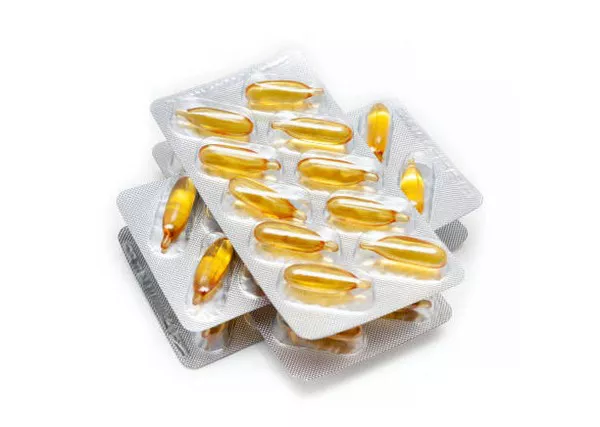A recent study has unveiled promising evidence that GLP-1 medications, commonly used for weight loss and diabetes management, may significantly reduce substance misuse, including alcohol and opioids. Conducted by researchers analyzing over 1.3 million health records, the study suggests that individuals with alcohol use disorder who are prescribed GLP-1 drugs, such as Ozempic and Mounjaro, experience a 50% lower risk of alcohol intoxication. Similarly, those with opioid use disorder taking these medications saw a 40% decrease in the likelihood of opioid overdose.
Published in the journal Addiction, the findings indicate that the appetite-suppressing effects of GLP-1 medications may also extend to curbing addictive behaviors. The research highlights that while substantial reductions were observed in extreme cases of substance misuse, further investigation is necessary to explore the broader implications of these findings.
Lorenzo Leggio, MD, a clinical researcher at the National Institute on Alcohol Abuse and Alcoholism (NIAAA) and the National Institute on Drug Abuse (NIDA), who was not involved in the study, commented on the potential of these medications. “These medications are promising new pharmacological treatments for addictions, including alcohol and opioid use disorders,” he noted. However, he emphasized the need for randomized, double-blind placebo-controlled trials to validate these initial results.
Study Overview: Impact on Substance Use Disorders
The research team delved into health data spanning from January 2014 to August 2022, focusing on over 500,000 individuals with opioid use disorder. Among this group, approximately 8,100 were prescribed GLP-1 drugs. The results revealed that those on these medications had a 40% lower rate of opioid overdose compared to their non-prescribed counterparts.
Similarly, an analysis of over 800,000 individuals with a history of alcohol use disorder showed that about 5,600 had received prescriptions for GLP-1 medications. The findings indicated that participants with alcohol use disorder who took these drugs experienced a 50% decrease in alcohol intoxication rates.
This study is notable as it represents the first large-scale human research examining the potential of weight-loss medications in reducing addiction risks. Matt Field, a psychology professor at the University of Sheffield, remarked that the results align with earlier animal studies suggesting that these medications might be effective in treating addiction.
Mechanism of Action: GLP-1 Drugs and the Brain
The research indicates that GLP-1 medications influence the brain’s mesolimbic system, responsible for regulating appetite and reward responses. This system overlaps with areas linked to addiction, suggesting that GLP-1 receptor agonists may alter reward pathways associated with substance misuse.
Leggio pointed out that while the findings are encouraging, further exploration is essential. “The data we have so far imply that these medications could be beneficial for addiction by reducing cravings and lowering substance use across various categories, including alcohol and opioids,” he explained.
However, Field cautioned against drawing definitive conclusions. He noted that the study primarily assessed extreme cases of substance misuse, which differ from typical research metrics evaluating addiction treatments. This leaves open the possibility that while GLP-1 drugs might help prevent severe outcomes like overdoses, they do not necessarily reduce overall substance consumption or lead to abstinence.
Understanding Alcohol and Opioid Use Disorders
Alcohol use disorder affects an estimated 29 million individuals aged 12 and older in the United States, with 17 million being male and 12 million female. The condition is characterized by an impaired ability to control alcohol consumption, despite adverse consequences.
Conversely, opioid use disorder is estimated to affect about 4% of U.S. adults, translating to over 9 million individuals in need of treatment. The opioid crisis remains a pressing issue, with over 80,000 opioid-involved overdose deaths recorded in 2022, marking the highest rate in history.
Current treatment options for both disorders include FDA-approved medications such as naltrexone and acamprosate for alcohol use disorder, as well as methadone and buprenorphine for opioid use disorder.
Leggio emphasized the necessity of increasing accessibility to these existing treatments, stating, “These medications are effective but are not utilized to their full potential. Efforts should be made to broaden the availability of these approved treatments.”
The Broader Benefits of GLP-1 Medications
Recent investigations have indicated that GLP-1 drugs, such as semaglutide (found in Ozempic and Wegovy) and tirzepatide (found in Mounjaro), not only assist with weight management but may also lower the risk of developing type 2 diabetes and certain cancers.
As pharmaceutical companies explore the therapeutic potential of GLP-1 medications in treating substance use disorders, the medical community remains hopeful. Further studies are needed to substantiate these findings and establish a comprehensive understanding of how these drugs can benefit patients battling addiction.
Conclusion
The findings from this new study indicate that GLP-1 drugs could play a pivotal role in mitigating the risks associated with alcohol and opioid misuse. While initial results are encouraging, researchers stress the importance of further studies to confirm the efficacy of these medications in treating substance use disorders.
Related Topic:


